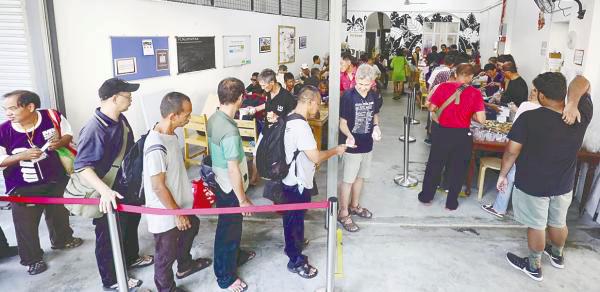THE concept of “multidimensional poverty” recognises poverty as a complex issue beyond financial or economic metrics.
Prime Minister Datuk Seri Anwar Ibrahim asserted that the Madani administration is dedicated to addressing severe poverty, infrastructure development and essential utilities.
With growing attention to the poverty issue and the idea of multidimensional poverty becoming more popular, it is imperative that stakeholders receive the necessary training to guarantee that the Multidimensional Poverty Index (MPI) is successfully comprehended, used and applied in policy and decision-making. This will enable significant and long-lasting initiatives to address multidimensional poverty in Malaysia.
To combat poverty, training programmes based on the MPI should be developed to give individuals and organisations the knowledge, tools and capacities necessary to comprehend and tackle the complexities of poverty that extend beyond income-based measures.
In this regard, training goals may improve participants’ comprehension of multidimensional poverty ideas, give them tools for analysing and interpreting data and enable them to effectively use the MPI in interventions and policymaking.
Given this, a well-thought-out plan will ensure that the training material is suited to the target audience and their responsibilities in combatting poverty, making it easier to choose the pertinent subjects and approaches that will be helpful to the participants.
Therefore, one of the training strategies must involve the team conducting a needs assessment. This entails determining the training’s target audience (for example, government officials, NGOs and researchers), ascertaining their current knowledge and proficiency levels about multidimensional poverty and defining the particular domains in which training is needed.
Workshops are one way to conduct training. Interactive and participatory techniques are promoted to actively involve individuals.
It is hoped that the MPI’s impact may be maximised by information dissemination and capacity building through training, which will result in more specialised and focused actions addressing poverty’s unique aspects.
The Multidimensional Poverty Training Plan and Strategy seeks to establish a solid base of knowledge and experience among stakeholders to effectively confront poverty from a multidimensional viewpoint.
The plan should be adaptive and responsive to the changing demands and obstacles of poverty reduction initiatives. It should enable participants to make well-informed decisions and implement evidence-based policies that result in significant and long-lasting poverty alleviation.
Extensive and productive stakeholder interaction is crucial for the MPI’s successful implementation. When customising interaction tactics, various stakeholder groups’ distinct priorities, viewpoints and interests should be considered.
While NGOs and community leaders can be more concerned about the impact on grassroots activities and local empowerment, policymakers will need information on policy implications and how the MPI may influence data-driven decision-making. This engagement creates a sense of ownership, commitment and accountability and guarantees that the MPI matches their needs and goals.
Inclusionary and interactive stakeholder engagement is essential for every project but it becomes more critical when the MPI is executed. Therefore, including stakeholders in an inclusive way ensures that a variety of viewpoints, especially those marginalised and disadvantaged groups, are considered. This inclusion aids in identifying metrics that accurately reflect the unique hardships that various demographic groups experience.
On the other hand, participatory involvement guarantees that the features that have been selected are pertinent to the local context and considerate of cultural norms, values and customs. Communities are more likely to connect with the dimensions, and governments are more willing to support them.
Thus, stakeholders’ combined efforts will help to provide more sophisticated knowledge of practical and focused measures for reducing poverty. This knowledge’s multifaceted nature will ultimately enable practitioners and politicians to create focused and practical solutions.
The writer is the director of the Ungku Aziz Centre for Development Studies at Universiti Malaya. Comments: letters@thesundaily.com









